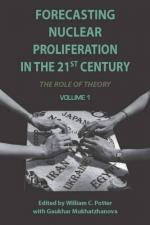|
This section contains 3,760 words (approx. 13 pages at 300 words per page) |

|
Role theory concerns the tendency for human behaviors to form characteristic patterns that may be predicted if one knows the social context in which those behaviors appear. It explains those behavior patterns, (or roles) by assuming that persons within a context appear as members of recognized social identities (or positions) and that they and others hold ideas (expectations) about behaviors in that setting. Its vocabulary and concerns are popular among both social scientists and practitioners, and role concepts have generated both theory and a good deal of research. Nevertheless, conflicts have arisen about the use of role terms and the focus of role theory, and different versions of the theory have appeared among groups of authors who seem to be unaware of alternative versions. Role theory has been weakened by association with controversial theories in sociology, as well.
History, Differentiation, and Confusion
Role theory arose when...
|
This section contains 3,760 words (approx. 13 pages at 300 words per page) |

|


